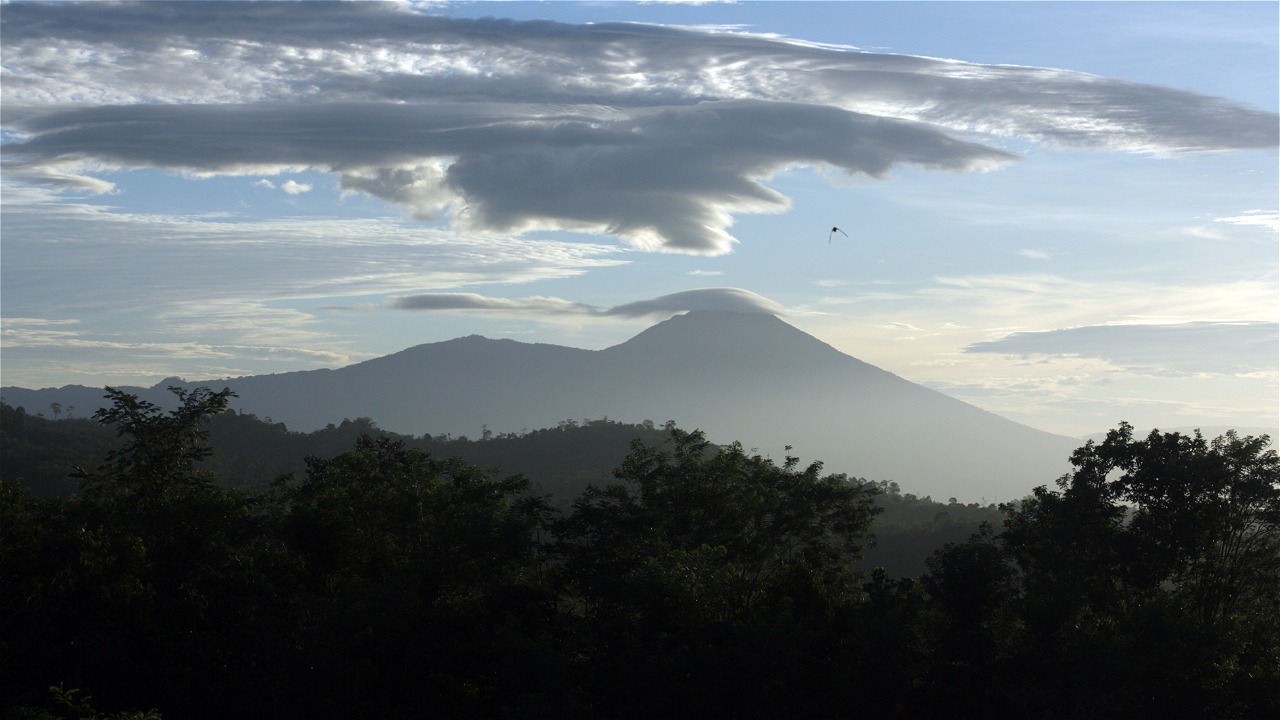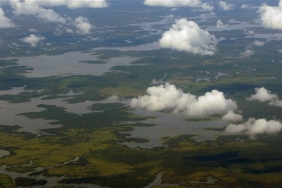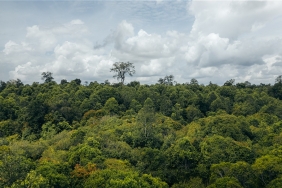TOMMY THE FOSTER CHILD
Shintya Kurniawanor commonly called Shintya or Tya works at WWF Jakarta as a Media Development Officer. A communication science graduate from University of Indonesia and Imago Advertising School, she loves writing and traveling. She currently actively manages her personal blog at tyadventure.multiply.comFull author profile...
(This Post is dedicated to Tommy and friends in the Elephant Patrol Team, TNBBS)
For example, if there is a sick elephant, Mr. Veterinarian must be quick to handle it. Or if an animal dies in the NP area, the team involved in conservation must immediately conduct an autopsy. For someone who has never been in direct contact with the NP area and its activities, this experience gave me many insights. Especially when I met Tommy, the orphaned elephant calf who was eventually fostered by Arni, the only female elephant in the TNBBS Elephant Patrol group.
Tommy is a wild elephant calf found by friends at the BBS site, he was separated from his group either due to a natural disaster or because his mother died (due to poaching or other factors). The exact cause is unknown as Tommy was completely alone when found. He was encouraged to rejoin the wild elephant group around BBSNP, but the other elephants always refused him. Tommy was even kicked by a senior elephant when he tried to approach the group.
Moreover, he also seemed reluctant to join the wild elephant group, so he repeatedly returned to the Elephant Patrol camp where there were four tame elephants trained as human-elephant conflict mitigators in the TNBBS area. The four Elephant Patrol members are named Renggo, Karangin, Yongki and Arni. Arni is the woman in the elephant rogues' den because she is the only female elephant in the Elephant Patrol team. Oh yes, elephants are maternalistic, hahaha because the leader of the group is a female :D And led by Arni, the friends managed to install a GPS collar on a group of wild elephants. It was exciting to hear the story of the GPS collar installation. How the Elephant Patrol group was surrounded by wild elephants and they couldn't make a single wrong step because their lives were at stake! Fortunately, it was accessible.
Arni is now Tommy's foster parent. Tommy is finally officially allowed to be a member of the Elephant Patrol team because he always PDKT to camp :P He's so cute... his fur is like palm fiber... and he has a lot of river minerals on his body. Yes! Elephants love to soak in the river and play with water :) All Elephant Patrol members, except Tommy, used to be elephants "bred" by Way Kambas National Park to perform attractions. Now they are relocated to BBS to conduct wild elephant control patrols. The function of these patrols is not only to reduce potential human-elephant conflicts (by "herding" wild elephants away from human settlements), but also to reduce poaching and forest encroachment. Elephants are surprisingly efficient at performing these tasks. They are very agile in going up and down hills, in and out of the forest with their mahout (a kind of handler/ranger). If you ride a horse, you may not be able to get through the tough terrain in the middle of the forest.
There is also the consideration of load. Elephant Patrol teams usually patrol for days or even weeks in the forest. They also have to stay overnight in the forest, carrying food and drink supplies, and tents. The Mahout sleeps with the elephants.
The Elephant Patrol Team has been effective in reducing elephant-human conflict. They were also instrumental in relocating six elephants from North Lampung that were too aggressive. How can you not be aggressive if you have less space and habitat? The 6 elephants from North Lampung were moved to South Lampung because they had killed 8 people there.
The method of killing was quite sadistic. According to Mas Ali, the expert staff there, elephants always remember what they learn. If the first time they kill a human being is by being thrown into the air, then slammed into the ground or wall, and finally stepped on, then that's how they'll kill the next time. This does not apply to all elephant groups. Only in this case in North Lampung. These elephants may have found this method effective, so they continue to kill their victims in the same way. It's really scary to hear the story... The victims usually have their heads crushed out of shape... only the scalp seems to be still attached... oh my!
The behavior of these wild elephants has turned aggressive as their migration corridors and space have become more limited. In the past, maybe they didn't destroy all the houses they saw/passed by... At most, only a few were considered really annoying because they were in the middle of the migration route. But lately they have become more "ignorant" and always want to demolish the houses they see. Instead of getting more depressed and endangering the people too, these wild elephants were finally moved to BBS National Park. It's sad really... elephants and humans are at each other's throats, feeling threatened by land loss.
Elephants usually travel along the same migratory path during their lifetime. It's a migration path they've known since childhood, since they first followed their mothers around. Usually, the migration cycle is completed within a year, so it can be predicted where they will pass in certain months. Because the area is decreasing, now it takes less than a year for the migration cycle to be completed. Even in the existing migration corridors, conditions can change, there are migrants or residents who are desperate to build houses in the middle of the migration corridor because they may have no other choice... Thus, the fight with the elephant. Speaking of these migration corridors, tigers and other animals also experience similar problems.
If I hadn't come and heard the story directly from the staff at BBS, I would probably still think that human-animal conflicts are rare, but in fact, they are very common in various parts of the world. The latest one to get the spotlight was the case of an elephant killed by a train. Yes! Believe it or not... there are people who build train tracks in the middle of elephant migration routes. Hadeehhh.
Elephants are actually cute and cuddly... although they can also be dangerous. But elephant aggressiveness shouldn't be a problem for humans if we're not aggressive/greedy enough to encroach on their land.
Besides meeting elephants, I also had the opportunity to chat with friends from the Rhino Protection Unit and hear their stories about rhino poaching. TNBBS is interesting. There are still Sumatran tigers that sometimes show their tracks near the camp where we stay, there are rhinos, elephants, gibbons, etc. The flora collection is also quite diverse. The flora collection is also quite diverse. Their challenge now is to slow down the rate of deforestation. With the opening of asphalt roads, it's easier to access illegal logging timber. Fortunately, it's decreasing now because people's awareness to complain about these kinds of things is increasing.
So that the locals can still eat without having to extract forest products, conservation team members usually approach and educate them about alternative livelihood, one of which is by growing coffee in areas outside the National Park. Not by clearing land in the middle of the forest.. which happened a lot back then in BBS.
The coffee is called Kuyung Arang and is one of the Green & Fair products. The results are very promising. Unfortunately, not everyone is open to these methods. It took a while to convince them that farming organically is profitable, even if it is a bit of a hassle.
By using homemade compost, of course, farmers don't need to spend more money on pesticides, etc. This is a long story... I need another post to discuss Green & Fair.
Well, it was a fun trip and it is fun getting to know all these stuffs directly. I wish I can meet Tommy again who is now 3 years old and I really really hope policy makers and law enforcers can really do their job in prosecuting cases of deforestation, poaching, and the like.
We used to have a rich biodiversity... we have less today... if all these illegal activities don't stop today... what will we have and be proud of tomorrow?





